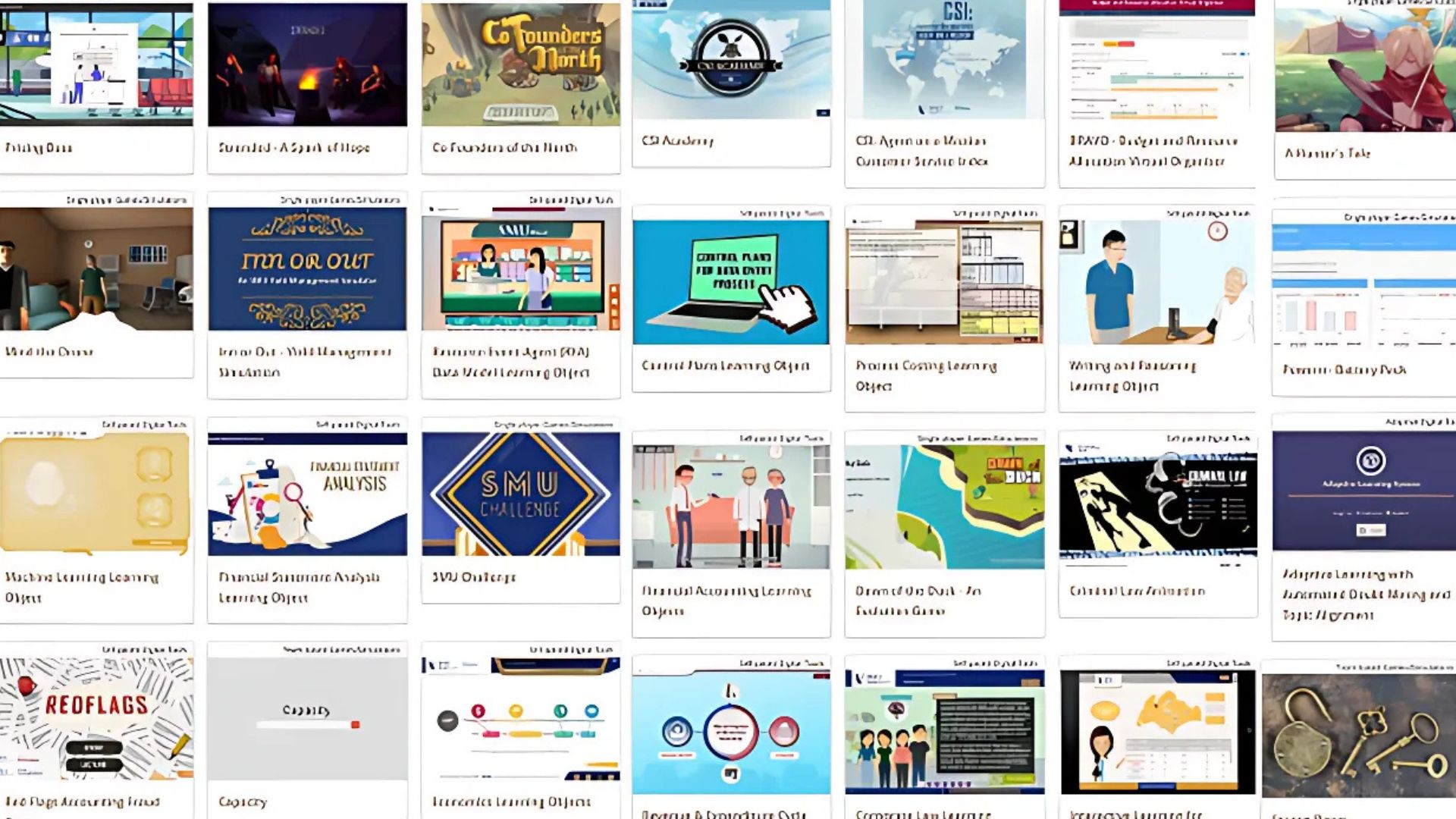
Aacharya.ai: Human Ability-Driven Learning Guide
Future of learning isn’t a static course, but an intelligent AI guide that adapts to the learner. Aacharya is an enterprise grade trustworthy AI-based training and assessment guide, built ground up after years of research on human-ability-modelling, that automates generation of training and assessment content based on private un-curated raw data, human-ability and science of learning principles.

Technology Enhanced Learning (TEL)
Technology Enhanced Learning (TEL) is about using technology to help students achieve learning outcomes in a course by positively influencing their learning behaviour, as well as enhancing their knowledge construction and social interaction. Throughout the years, the Centre for Teaching Excellence have been helping faculty members to develop innovative TEL Projects that help to drive and achieve course learning outcomes. These projects involve a variety of media including, games, simulations, learning objectives, virtual reality applications, web applications and many more.

Integrated Feedback on Student Learning Outcomes For Improvement & Growth (INSIGHT) System
The Integrated Feedback on Student Learning Outcomes for Improvement and Growth (INSIGHT) System is an eLearn (SMU’s Learning Management System)-integrated web-application that allows instructors to map SMU’s Graduate Learning Outcomes to course learning outcomes and to assessment parts (rubric items for assignments, sections in quizzes) within a course. The INSIGHT System uses eLearn assessment scores to feed a learning outcome dashboard for students and instructors. It allows instructors to track students progress, as individuals and as a class, for course and graduate learning outcomes It works by mapping Assessments to Course Learning Outcomes linked to SMU’s Graduate Learning Outcomes. This allows instructors to adjust their instructional strategies in accordance with the attainment of these learning outcomes. It allows students more personalised coaching and advice during consultation sessions.

Enhancing Data Literacy Education through Game-Based Approach in School Curriculum
To foster a data-literate community within a smart nation and digital economy, it is crucial to start developing data literacy skills among students who will shape our digital future. However, the current landscape lacks effective and engaging tools that can teach data literacy to students. By combining entertainment through gamification with the learning of subjects like geography, social studies, and accounting, students can develop their analytical thinking skills while acquiring essential knowledge for a data-driven future.

Occupancy Aware, Camera-Based Smart Lighting System
In workspaces and commercial buildings, lighting represents a significant portion of energy consumption after HVAC systems. However, current lighting solutions often lack efficiency and fail to adapt to occupancy levels and varying lighting needs. There is a need for an intelligent lighting system that can reduce energy consumption while maintaining occupant comfort by automatically adjusting lighting intensity based on occupancy and natural light levels.

Document-based Question Answering System
Finding precise answers to questions within given articles is a challenge that existing systems struggle to address. There is a need for an AI-driven question answering technology that can automatically extract short spans of text as precise answers from articles.